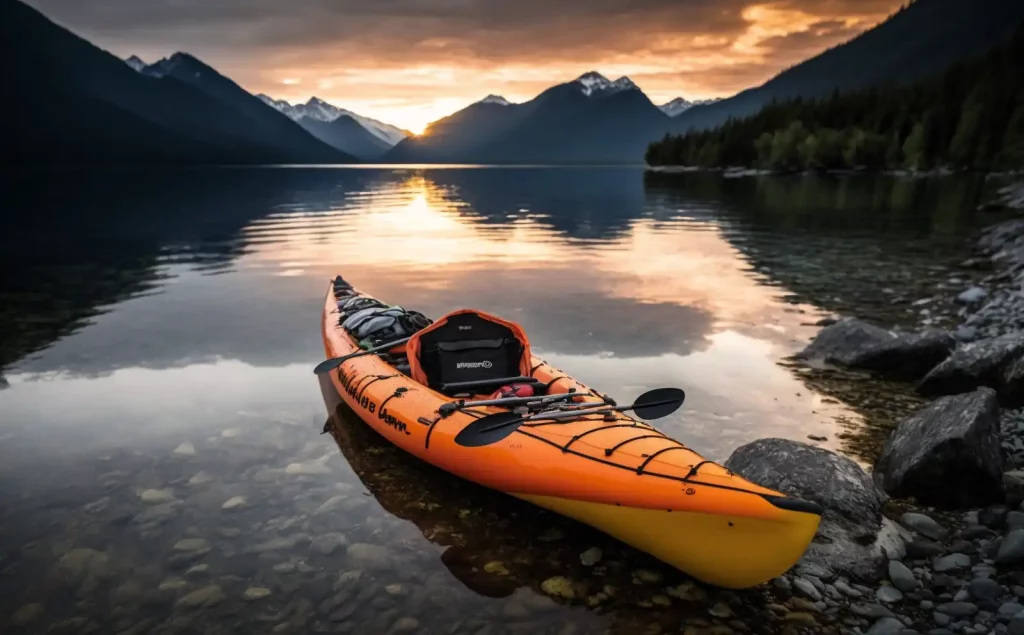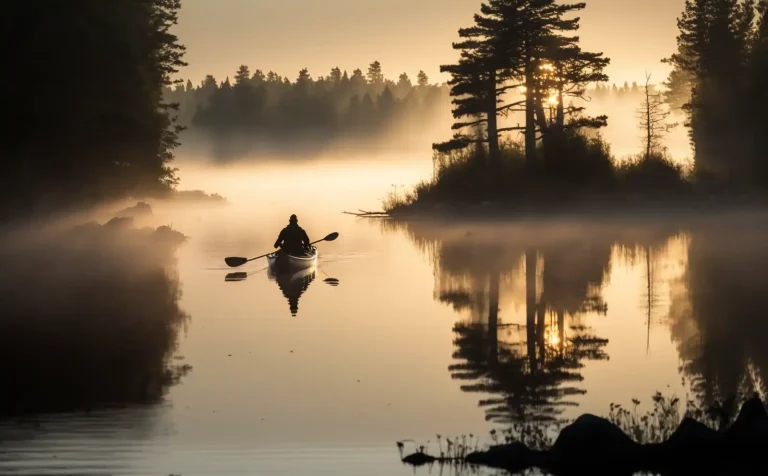Kayak camping is a thrilling outdoor activity that combines the excitement of kayaking with the thrill of camping. It is an excellent way to explore nature, disconnect from technology, and enjoy the tranquility of the outdoors. However, for beginners, it can be a bit intimidating. To help you get started, we have compiled ten essential tips for kayak camping beginners.
Tips for Kayak Camping Beginners
1. Choosing the Right Kayak
Before embarking on your kayak camping trip, it is important to choose the right kayak. Your kayak should be comfortable, stable, and durable enough to handle the demands of a camping trip. You should also consider the type of water you will be kayaking in, as different kayaks are designed for different types of water.

2. Essential Gear for Kayak Camping
In addition to your kayak, there are several essential pieces of gear you will need for your kayak camping trip. These include a life jacket, a paddle, a tent or hammock, a sleeping bag, a sleeping pad, campfire cooking utensils, barbecue tool set and a camp stove. You will also need to bring appropriate clothing, food, and water.

3. Packing for Your Kayak Camping Trip
When packing for your kayak camping trip, it is important to pack light and only bring what you need. You should also consider the weight distribution of your gear and pack it in a way that balances your kayak. Waterproof bags are also essential to keep your gear dry and protected from the water.
4. Setting Up Camp
When setting up camp, it is important to choose a flat and dry area. You should also consider the direction of the wind and the placement of your tent. Make sure to stake down your tent and secure it with guy lines to prevent it from blowing away in strong winds.
5. Storing Your Food
Storing your food properly is essential to prevent animals from getting into your food supply. Use a bear canister or hang your food from a tree using a bear bag. Make sure to store your food at least 100 feet away from your campsite.
6. Campfire Safety
Campfires can be an enjoyable part of a camping trip, but it is important to practice campfire safety. Make sure to build your fire in a fire ring or pit and keep it a safe distance from your tent. Never leave your fire unattended and make sure to fully extinguish it before leaving.
7. Water Safety
Water safety is essential when kayaking. Always wear a life jacket and stay aware of your surroundings. Avoid kayaking in rough waters or areas with strong currents.
8. Navigation Tips
Navigation is an important part of any outdoor adventure. Make sure to bring a map and compass and know how to use them. You should also familiarize yourself with the area you will be kayaking in and know where the nearest emergency services are located.
9. Leave No Trace Principles
Leave No Trace is a set of principles for outdoor ethics that promote responsible outdoor practices. These include packing out all of your trash, avoiding damaging vegetation, and respecting wildlife.
10. Planning Your Kayak Camping Trip
Finally, it is important to plan your kayak camping trip carefully. Consider the weather forecast, the water conditions, and the availability of campsites. Make sure to tell someone where you will be and when you plan to return.
Learn more: How to Pack a Kayak for a Camping
FAQs
Do I need prior kayaking experience to go on a kayak camping trip?
While prior kayaking experience is helpful, it is not necessary. It is recommended to take a kayaking lesson or two before your trip to become more comfortable with the equipment and techniques.
Can I bring my own camping gear on a kayak camping trip?
Yes, you can bring your own camping gear, but it is important to pack light and make sure that your gear is suitable for kayak camping.
What should I do if I encounter wildlife while kayaking?
Keep a safe distance and do not approach the wildlife. Admire from afar and avoid disturbing their natural habitat.
Is it safe to kayak at night?
It is not recommended to kayak at night, as visibility is reduced and it is more difficult to navigate safely.
Do I need a permit for kayak camping?
It depends on the location you plan to kayak camp. Research the regulations for the area you plan to visit and obtain any necessary permits or licenses beforehand.
Final words
In conclusion, kayak camping can be a fun and rewarding way to experience the great outdoors. By following these ten essential tips for beginners, you can ensure that your trip is safe, enjoyable, and unforgettable.
Remember to choose the right kayak, pack light, and bring essential gear. When setting up camp, choose a flat and dry area, and store your food properly to prevent animals from getting into it. Practice campfire safety and water safety, and make sure to navigate responsibly and follow Leave No Trace principles.
With careful planning and preparation, you can embark on a kayak camping trip that is both exciting and relaxing. So gather your gear, hit the water, and enjoy the beauty of nature.

Anthony is a passionate outdoor enthusiast with a love for adventure and exploring the great outdoors. With years of experience hiking, camping, and rafting, he has a wealth of knowledge to share with others. Anthony’s writing captures the essence of his experiences, offering readers insights into some of the most beautiful and breathtaking landscapes in the world. Follow his journey and join the conversation as he continues to share his passion for the great outdoors.

